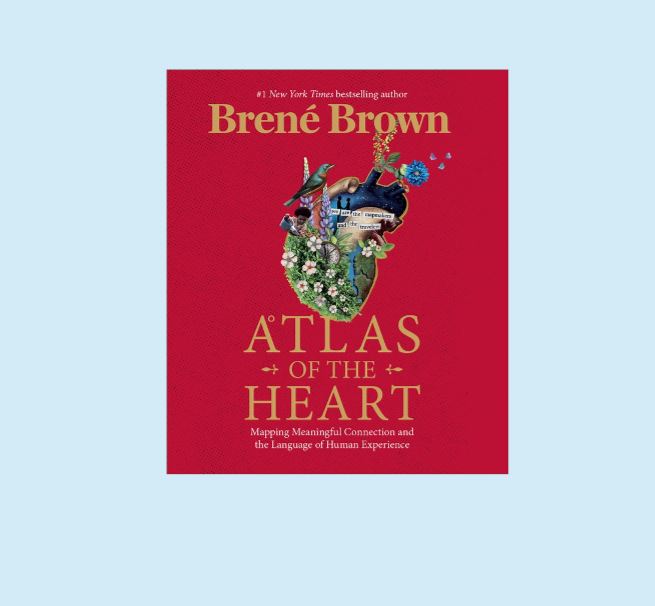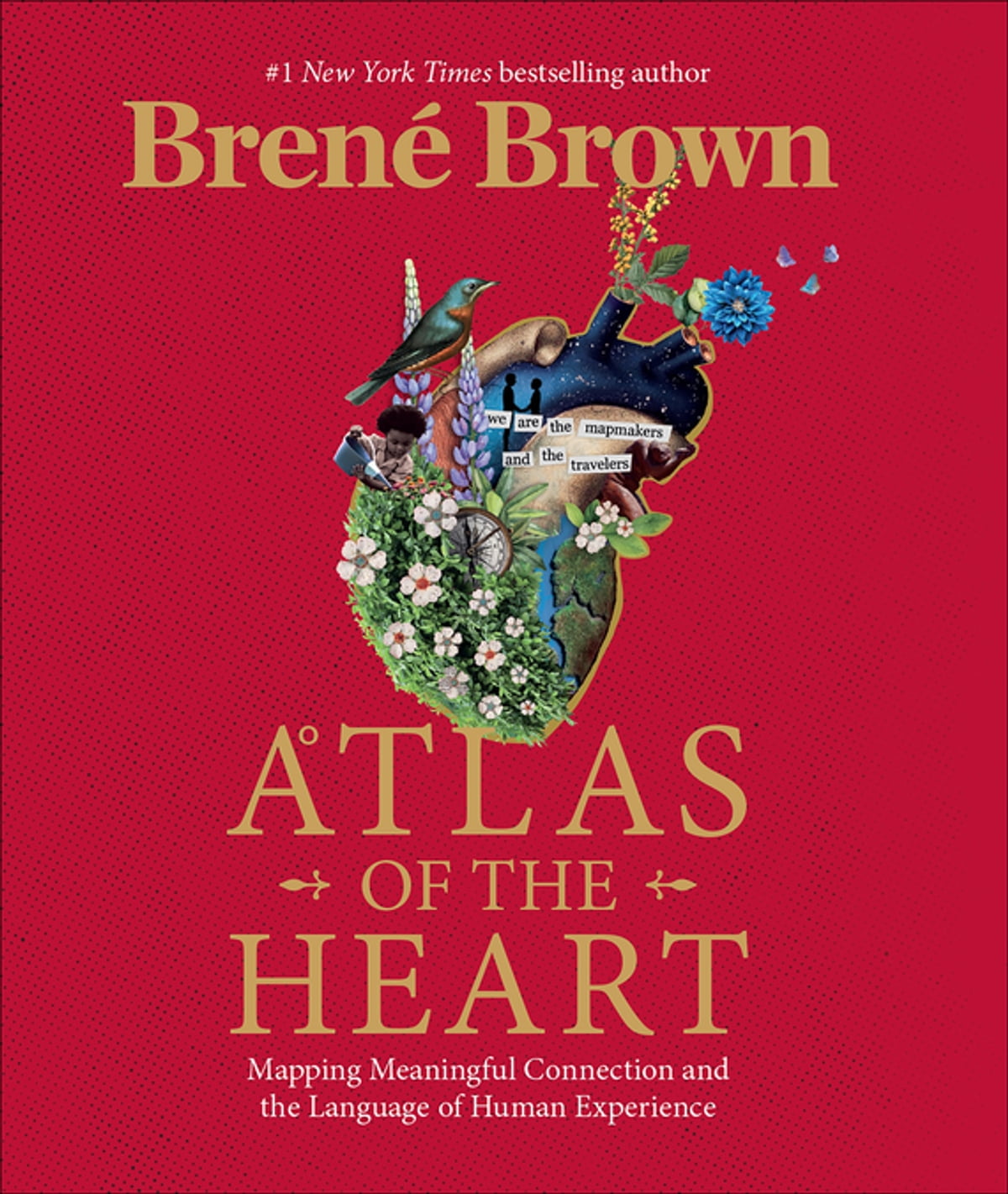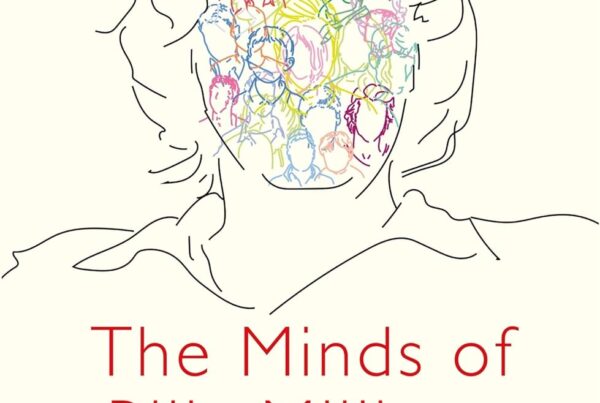
Brené Brown is an American academic researcher, known for her research on shame, leadership, and vulnerability. In addition, she is famously known for her TED Talk, “The Power of Vulnerability”, and hosts podcasts “Unblocking Us” and “Dare to Lead”. Brown’s work, Atlas of the Heart, serves as an exploration of human emotions and provides ‘landmarks’ to understanding the interaction between human emotions and experiences through biology, biography, behaviour and backstory.
This quotation from the book neatly summarises what Atlas of the Heart aims to be: “Even when we have no idea where we are or where we’re going, with the right map, we can find our way back to our heart and to our truest self.”. Brown expresses that when we feel lost our instinct is to hold onto the bits of certainty we can muster, but by better understanding our emotions, we are able to establish and access the language of emotion and open our hearts and minds to meaningful connections with others.
Brown dives into exploring 87 emotions, and taking into account the carefully crafted metaphor of the atlas, she creates 13 ‘landmasses’. These serve as ‘destinations’ describing the emotions we feel when we do something, examples being ‘Places we go when we compare’ and ‘Places we go when it is beyond us’. She starts each section with how we feel the emotion and recognize the emotion, using rather relatable anecdotes, and often carries on to elaborate on research studies that relate to the emotion. For the interest of a psychology student, the majority of the research studies she uses are grounded in social psychology.
The research element that Brown brings to this book is refreshing as it is digestible and is easy to find relevant. For instance, in her section ‘Places we go when we fall short, she sheds light on emotions such as shame, self-compassion, perfectionism, guilt, humiliation and embarrassment. In her humiliation segment, she opens with ‘The entire key to understanding humiliation is that when it happens to us, it feels unjust.’. Upon elaborating on humiliation she brings research done into the link between humiliation and aggressive behaviours. She explains that studies suggest that bullying alone does not lead to violence but when it is accompanied by feelings of humiliation.
An appreciated feature of Atlas of the Heart is that Brown doesn’t forget to leave her readers a way to tackle these emotions that make us human. Sometimes it is phrased as a lesson that feels perhaps obvious, but laying it out in writing is refreshing and at times urges one to stay and ponder it for a minute. One of such quotations that I am glad I let sink in is “Comparison is the crush of conformity from one side and competition from the other—it’s trying to simultaneously fit in and stand out.”. Brown suggests that comparison is like a paradox, one where we are encouraged to stand out while simultaneously being convinced about fitting in. We will never compare ourselves to those wildly different to us but we will try to outrank those closest to us. She explains the social psychology research regarding upwards vs downwards comparisons and highlights that it is important that we remember how we can choose how comparison reflects on us- it does not automatically have to be negative.
Atlas of the Heart almost reads like a self-help book, but one that is insightful with regards to humans in general rather than targeted at personal self-improvement. As a whole, the book is a smooth and quick read, and communicates exactly what it intends to. It is not about how we form emotions but rather what is the purpose of having such emotions and how do we respond to them. This is a book for everyone who wants to know about emotions, how we cope with them and would like to walk away with a multitude of clever quotations ringing in their ears wanting to tie them to personal experiences. <<
Available at your local book store or online, starting from €18.69.

Brené Brown is an American academic researcher, known for her research on shame, leadership, and vulnerability. In addition, she is famously known for her TED Talk, “The Power of Vulnerability”, and hosts podcasts “Unblocking Us” and “Dare to Lead”. Brown’s work, Atlas of the Heart, serves as an exploration of human emotions and provides ‘landmarks’ to understanding the interaction between human emotions and experiences through biology, biography, behaviour and backstory.
This quotation from the book neatly summarises what Atlas of the Heart aims to be: “Even when we have no idea where we are or where we’re going, with the right map, we can find our way back to our heart and to our truest self.”. Brown expresses that when we feel lost our instinct is to hold onto the bits of certainty we can muster, but by better understanding our emotions, we are able to establish and access the language of emotion and open our hearts and minds to meaningful connections with others.
Brown dives into exploring 87 emotions, and taking into account the carefully crafted metaphor of the atlas, she creates 13 ‘landmasses’. These serve as ‘destinations’ describing the emotions we feel when we do something, examples being ‘Places we go when we compare’ and ‘Places we go when it is beyond us’. She starts each section with how we feel the emotion and recognize the emotion, using rather relatable anecdotes, and often carries on to elaborate on research studies that relate to the emotion. For the interest of a psychology student, the majority of the research studies she uses are grounded in social psychology.
The research element that Brown brings to this book is refreshing as it is digestible and is easy to find relevant. For instance, in her section ‘Places we go when we fall short, she sheds light on emotions such as shame, self-compassion, perfectionism, guilt, humiliation and embarrassment. In her humiliation segment, she opens with ‘The entire key to understanding humiliation is that when it happens to us, it feels unjust.’. Upon elaborating on humiliation she brings research done into the link between humiliation and aggressive behaviours. She explains that studies suggest that bullying alone does not lead to violence but when it is accompanied by feelings of humiliation.
An appreciated feature of Atlas of the Heart is that Brown doesn’t forget to leave her readers a way to tackle these emotions that make us human. Sometimes it is phrased as a lesson that feels perhaps obvious, but laying it out in writing is refreshing and at times urges one to stay and ponder it for a minute. One of such quotations that I am glad I let sink in is “Comparison is the crush of conformity from one side and competition from the other—it’s trying to simultaneously fit in and stand out.”. Brown suggests that comparison is like a paradox, one where we are encouraged to stand out while simultaneously being convinced about fitting in. We will never compare ourselves to those wildly different to us but we will try to outrank those closest to us. She explains the social psychology research regarding upwards vs downwards comparisons and highlights that it is important that we remember how we can choose how comparison reflects on us- it does not automatically have to be negative.
Atlas of the Heart almost reads like a self-help book, but one that is insightful with regards to humans in general rather than targeted at personal self-improvement. As a whole, the book is a smooth and quick read, and communicates exactly what it intends to. It is not about how we form emotions but rather what is the purpose of having such emotions and how do we respond to them. This is a book for everyone who wants to know about emotions, how we cope with them and would like to walk away with a multitude of clever quotations ringing in their ears wanting to tie them to personal experiences. <<
Available at your local book store or online, starting from €18.69.




